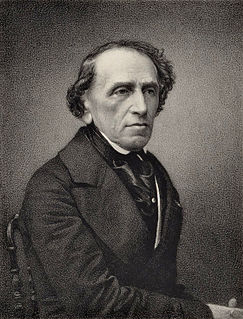A Quote by Hadewijch
The new year has begun for us. / Now must God grant us with love / That we may be able so to begin it / That it may be of value for Love.
Related Quotes
God grant that each of us here today may so live that all among us, and with us, may see, not us, but that which is divine and comes from God. With that vision of what those who have lost their way may become, my prayer is that they may receive strength and resolution to climb higher and higher and upward and onward to that great goal of eternal life and also that I may do my part in seeking to show by example, as well as by precept, that which will be the best of which I am capable of doing.
Grace is more than mercy and love. It super-adds to them. It denotes, not simply love, but the love of a sovereign, transcendent Superior. One that may do what He will. That may wholly choose whether He will love or no. Now God, who is an infinite Sovereign, who might have chosen whether ever He would love us or no; for Him to love us, this is Grace.
My prayer for the new year is that I may have the courage and the stamina to let Life happen to me, to accept its joys and successes, and to take in stride the learning that stretches us and the growing pains. Perhaps, to put it simply, my wish for the New Year is: may we love more, live more, laugh more. And so may you!
A good end cannot sanctify evil means; nor must we ever do evil, that good may come of it... It is as great presumption to send our passions upon God's errands, as to palliate them with God's name... We are too ready to retailiate, rather than forgive, or gain by love and information. And yet we could hurt no man that we believe loves us. Let us try then what Love will do: for if men did once see we love them, we should soon find they would not harm us. Force may subdue, but Love gains: and he that forgives first, wins the laurel.
The whole story of creation, incarnation, and our incorporation into the fellowship of Christ's body tells us that God desires us, as if we were God, as if we were that unconditional response to God's giving that God's self makes in the life of the Trinity. We are created so that we may be caught up in this, so that we may grow into the wholehearted love of God by learning that God loves us as God loves God.
Love is what God is, love is why Jesus came, and love is why he continues to come, year after year to person after person...May you experience this vast, expansive, infinite, indestructible love that has been yours all along. May you discover that this love is as wide as the sky and as small as the cracks in your heart no one else knows about, and may you know, deep in your bones, that love wins.
A good end cannot sanctify evil means; nor must we ever do evil that good may come of it. We are too ready to retaliate, rather than forgive, or gain by love and information. And yet we could hurt no man that we believe loves us. Let us, then, try what love will do: for if men do once see that we love them, we should soon find they would not harm us. Force may subdue, but love gains; and he that forgives first, wins the laurel.
God’s love sets us free from the need to seek approval. Knowing that we are loved by God, accepted by God, approved by God, and that we are new creations in Christ empowers us to reject self-rejection and embrace a healthy self-love. Being secure in God’s love for us, our love for Him, and our love for ourselves, prepares us to fulfill the second greatest commandment: To love our neighbor as ourselves.
I define vulnerability as uncertainty, risk and emotional exposure. With that definition in mind, let’s think about love. Waking up every day and loving someone who may or may not love us back, whose safety we can’t ensure, who may stay in our lives or may leave without a moment’s notice, who may be loyal to the day they die or betray us tomorrow—that’s vulnerability.
And God grant that His fire be not quenched! God save us from any smoothing over of these questions in the interests of a hollow pleasantness; God grant that great questions of principle may never rest until they are stettled right! It is out of such times of questioning that great revivals come. God grant that it may be so today! Controversy of the right sort is good; for out of such controversy, as Church history and Scripture alike teach, there comes the salvation of souls.
If the immutable heart can be grieved by the puppets of its own making, it is Divine Omnipotence, no other, that has subjected it, freely, and in a humility that passes understanding. If the world exists not chiefly that we may love God, but that God may love us, yet that very fact, on a deeper level, is so for our sakes. If He who in Himself can lack nothing chooses to need us, it is because we need to be needed.






































